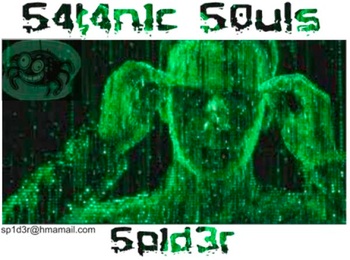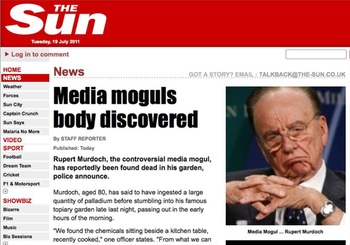
LulzSec’s hack of The Sun and other UK websites belonging to Rupert Murdoch’s News International yesterday was one of the highest-profile infosec breaches in history. But will it mean anything beyond today’s news cycle? I suspect not.
(If you’re not up to speed on this, please read my initial summary for CSO Online or a shorter but fresher story for Crikey.)
As I thought about this overnight, and after chatting with Paul Ducklin from information security vendor Sophos, I came to the conclusion that despite all the media coverage yesterday nothing will change.
I wrote that up as an op-ed for CSO Online, Four lessons from LulzSec vs Murdoch.
We’ve seen hack after hack after hack, but civilisation has stubbornly refused to crumble. We’ve cried wolf a few hundred times too often. We’re experiencing what Paul Ducklin from Sophos calls “hack fatigue”.
We only hear about successful hacks, from LulzSec or anyone else, Ducklin told CSO Online. “They can crow about every time they have a success,” he said, “but you never hear about the sites they never broke into.”
And the idea that LulzSEc’s high-profile hacks will suddenly focus attention on organisation’s information security vulnerabilities? Bah. We’ve been flooded with media reports of high-profile hacks for the last few years, from NATO to Paris Hilton, Google to prime minister Gillard.
After all those stories we held urgent meetings, changed our ways, and put infosec at the top of the business agenda, right?
Yeah right.
So now what? I’ll put my money on LulzSec being forgotten until their next high-profile attack, or their arrest.
[Picture: Early this morning Australian time, LulzSec tweeted: “The Sun taken care of… now what about the moon…”, linking to that image (source unknown). Is it a hint? Or a meaningless distraction?]




